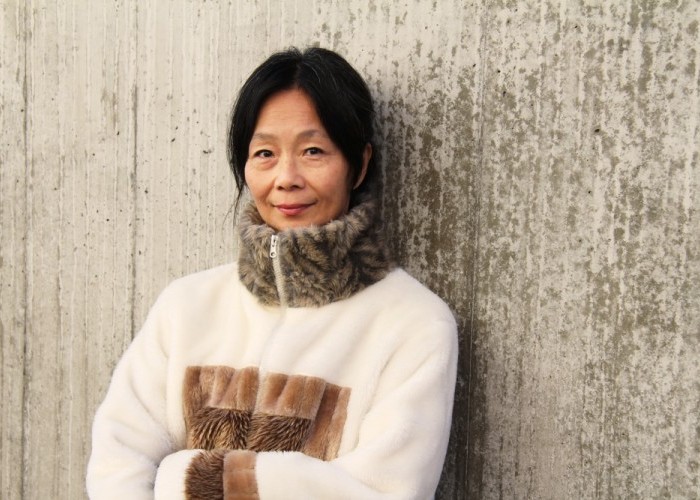Jan 13, 2026 2:09 PM
More Trump-Kennedy Center Cancellations
The fallout from the renaming of the John F. Kennedy Center for the Performing Arts to include President Donald…

Lisa Ullén recently released a 3-album set, Piano Works (Disorder).
(Photo: Helena Byström)Many musicians cite specific individuals as key influences, but for Swedish pianist Lisa Ullén, a particular community provided one of the strongest impacts upon her art.
She’s one of Stockholm’s most versatile, probing, and skilled musicians—qualities that have allowed her to thrive in all kinds of settings, whether in free improvisation or working in theater—and she’s said that encountering members of the collective behind the artist-run space Fylkingen in the early ’90s was crucial to her creative development.
“Over the years, I’ve met so many musicians, composers, and artists through Fylkingen who have influenced me on many levels,” said Ullén, 53. “I have listened to the best concert performance in my life there. I also first heard the pianist Sten Sandell, who has been a very important and supportive friend and colleague.”
Indeed, her circuitous path forward has embraced a wide variety of contexts and approaches, and although Sandell’s well known as a steely, daring improviser, her work extends in many other directions, much like Fylkingen’s eclectic programming.
She was born in South Korea and at age 4 was adopted by Swedish parents who lived in the small northern Swedish town of Örnsköldsvik; a few years later, she followed the lead of a friend and began taking piano lessons. Ullén hungrily listened to pop music on the radio, but her training led her to study classical music at the Royal College of Music, from which she graduated in 1991. Even then, her curiosity led Ullén outside of conventional thinking.
“My classical training has been important for the way I listen to details, I think, but I feel much more connected to jazz and improvisation and experimental music,” she said. “I am especially interested in investigating the possibilities of the piano, regardless of genre. At some level, the question is always about what the instrument can do and what you want to do with the music.”
The music contained on her ambitious recent 3-album set Piano Works (Disorder) clearly reflects such thinking, mixing compositional ideas with rigorous improvisation, sometimes incorporating preparations on her keyboard.
“I guess you could call them either composed improvisations or improvised compositions, in the sense that there is an idea for a rhythm or a soundscape when I begin playing. But it’s always an open question how the piece will be achieved,” she said. “It can’t happen the same way twice.”
The path to this recent opus has been circuitous, with endless turns, including periods spent away from the scene and raising three children. Early on, she applied her classical training as an accompanist, playing church concerts, dance classes and theaters, and it wasn’t until the mid-aughts when she began making a recurring presence on the international scene, issuing records and playing globally.
Ullén has released more than a dozen albums as leader or co-leader, working with an international cast, including Swedish bassist Nina de Heney, Korean cellist Okkyung Lee, Canadian bassist Torsten Muller, Swiss violist Charlotte Hug; and she’s remained a crucial member of several working bands, including the quartet Festen and Anna Högberg’s Attack, moving between driving post-bop and abstract free improvisation. The pianist continues to build a compositional repertoire for contemporary classical music, dance and theater, in addition to curating improvised and experimental music festivals in Stockholm.
She said her range doesn’t reflect a conscious effort, though.
“I follow my instinct,” Ullén said, “if I feel that I can contribute something in a collaboration I’m in, provided I have an interest in the musical idea at the heart of the project, and there’s a good energy. Other than that, there’s no plan.”
In the wake of Piano Works, she released a radically different ensemble project called Sequences And Layers, which she described as “a scored piece built as a rhythmic canon, in which the musicians are instructed to relate to the music as something living that has petrified. So, they may imitate, repeat, interrupt, resist and find new directions for the score.”
Ullén said that this approach reflects her belief that improvisation is more than a method; it’s a way of thinking and creating.
“It’s a matter of thinking concretely in music, not talking about it.” DB

Belá Fleck during an interview with Fredrika Whitfield on CNN.
Jan 13, 2026 2:09 PM
The fallout from the renaming of the John F. Kennedy Center for the Performing Arts to include President Donald…

Peplowski first came to prominence in legacy swing bands, including the final iteration of the Benny Goodman Orchestra, before beginning a solo career in the late 1980s.
Feb 3, 2026 12:10 AM
Ken Peplowski, a clarinetist and tenor saxophonist who straddled the worlds of traditional and modern jazz, died Feb. 2…

The success of Oregon’s first album, 1971’s Music Of Another Present Era, allowed Towner to establish a solo career.
Jan 19, 2026 5:02 PM
Ralph Towner, a guitarist and composer who blended multiple genres, including jazz — and throughout them all remained…

Rico’s Anti-Microbial Instrument Swab
Jan 19, 2026 2:48 PM
With this year’s NAMM Show right around the corner, we can look forward to plenty of new and innovative instruments…

Richie Beirach was particularly renowned for his approach to chromatic harmony, which he used to improvise reharmonizations of originals and standards.
Jan 27, 2026 11:19 AM
Richie Beirach, a pianist and composer who channeled a knowledge of modern classical music into his jazz practice,…